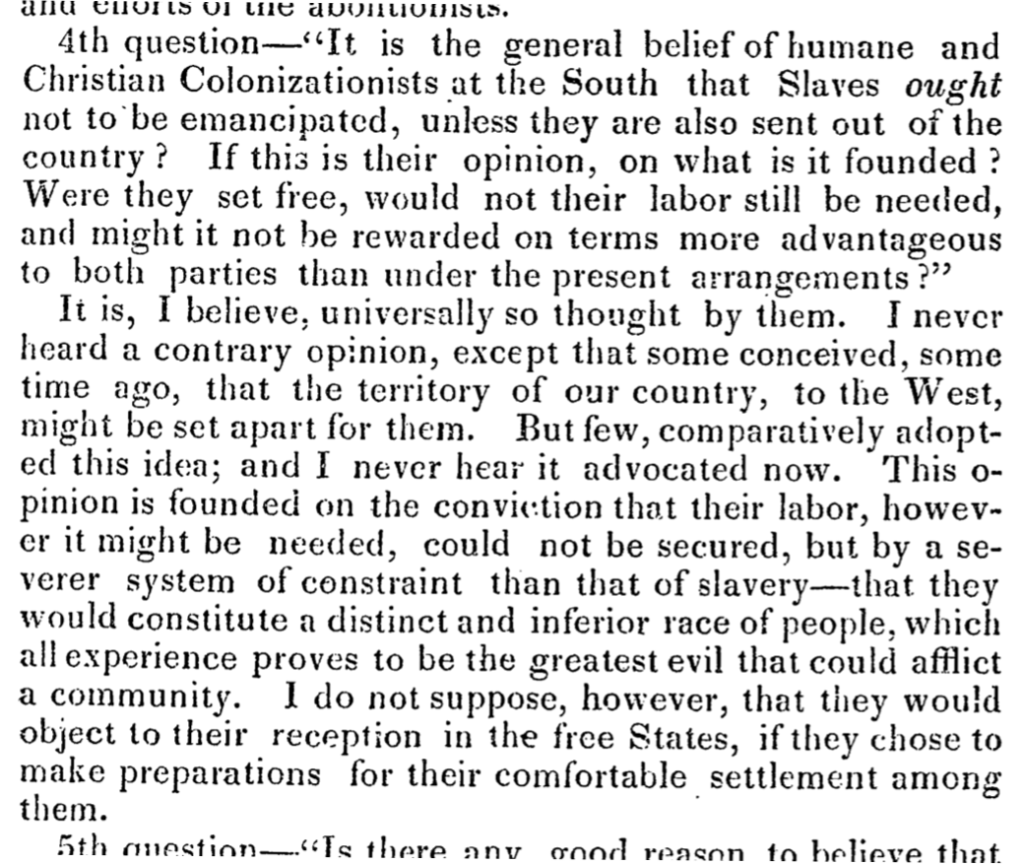Francis Scott Key is a complicated historical figure. As a slaveholder and a Southern attorney who often volunteered his services in representing enslaved people and free Blacks but who also fought passionately against abolitionists, Key has a troubling relationship with slavery. That his attitudes perpetuated white supremacy and have been proven wrong by history is beyond question. Nevertheless, it is vital to articulate his position precisely in our effort to understand both America’s own troubling legacy of racism and music’s role in resisting and perpetuating this injustice.
A racist quote attributed to Francis Scott Key, the author of the lyrics to “The Star- Spangled Banner,” has been circulating in news articles and blog posts. Incorrectly credited to Key as a first-person expression of his attitudes about race in the United States, the quote asserts that free Blacks are “a distinct and inferior race of people, which all experience proves to be the greatest evil that afflicts a community.”
The quote is taken from page 40 of Jefferson Morley’s generally insightful 2012 book Snow-Storm in August: Washington City, Francis Scott Key, and the Forgotten Race Riot of 1835 (1). Morley, in turn, cites as his sole source a quote in the 1937 biography Francis Scott Key: Life and Times by Edward S. Delaplaine (2). This biography is the source of confusion as to the quote’s speaker.
Discussing a July 1838 letter from Key to the Reverend Benjamin Tappan of Maine, Delaplaine reprints the quote as given and credits it to Key without sufficiently detailed explanation. A closer reading of the original letter, however, shows that Key did not represent his own words with the quoted phrase.
Question #4 in Tappan’s letter asks Key about the beliefs of Southern “Christian Colonizationists” concerning emancipation. In particular Tappan wants to know why they believe that the people thus freed must be sent to Africa, rather than being allowed to remain in the South as a free people paid for their labors. Key’s reply to this question includes the quote above but ascribes it not to his own feelings or ideas but to those who hold the opinion that freed slaves must be sent away. As reprinted by Augustus Palmer in a 1839 pamphlet, this full section appears as follows. (Note that Tappan’s question appears first, followed by Key’s response, beginning in line 8.)

It is important to ask if Key, who was himself a leader and fundraiser for the Colonization Society, shared this opinion. The best evidence to the contrary is that Key, who freed seven of his own ‘s slaves over the course of his life, did not send any of these men, women, and children to Africa upon their emancipation.
Where Key’s own thinking is in this statement is not precisely clear. The letter itself was a propaganda piece for the American Colonization Society and Key, himself, seems to have sincerely believed that colonization offered a pathway to a peaceful means to slavery’s end. As the U.S. Civil War proved, Key was wrong.
StarSpangledMusic.Org does not intend this post as an apology for Francis Scott Key. Confronting the racist past of the nation’s patriotic song and music generally is part of our promise as an organization “to critically examine the complex history of American patriotic art, especially as it reflects and perpetuates the pestilence of racism.”
Mark Clague, musicologist
Citations
- Jefferson Morley, Snow-Storm in August: Washington City, Francis Scott Key, and the Forgotten Race Riot of 1835 (New York: Doubleday, 2012). See page 40.
- Edward S. Delaplaine, Francis Scott Key: Life and Times (The Biography Press, 1937; reprinted by Heritage Books, 2011). See page 449.
- Augustus Palmer, A Collection of Facts in Regard to Liberia, By Judge Paine, of Vermont: To which is added the correspondence of the Rev. Benjamin Tappan, of Maine, and Francis S. Key, Esquire, of the District of Columbia (Woodstock, VT: Augustus Palmer, 1839). See page 27.

